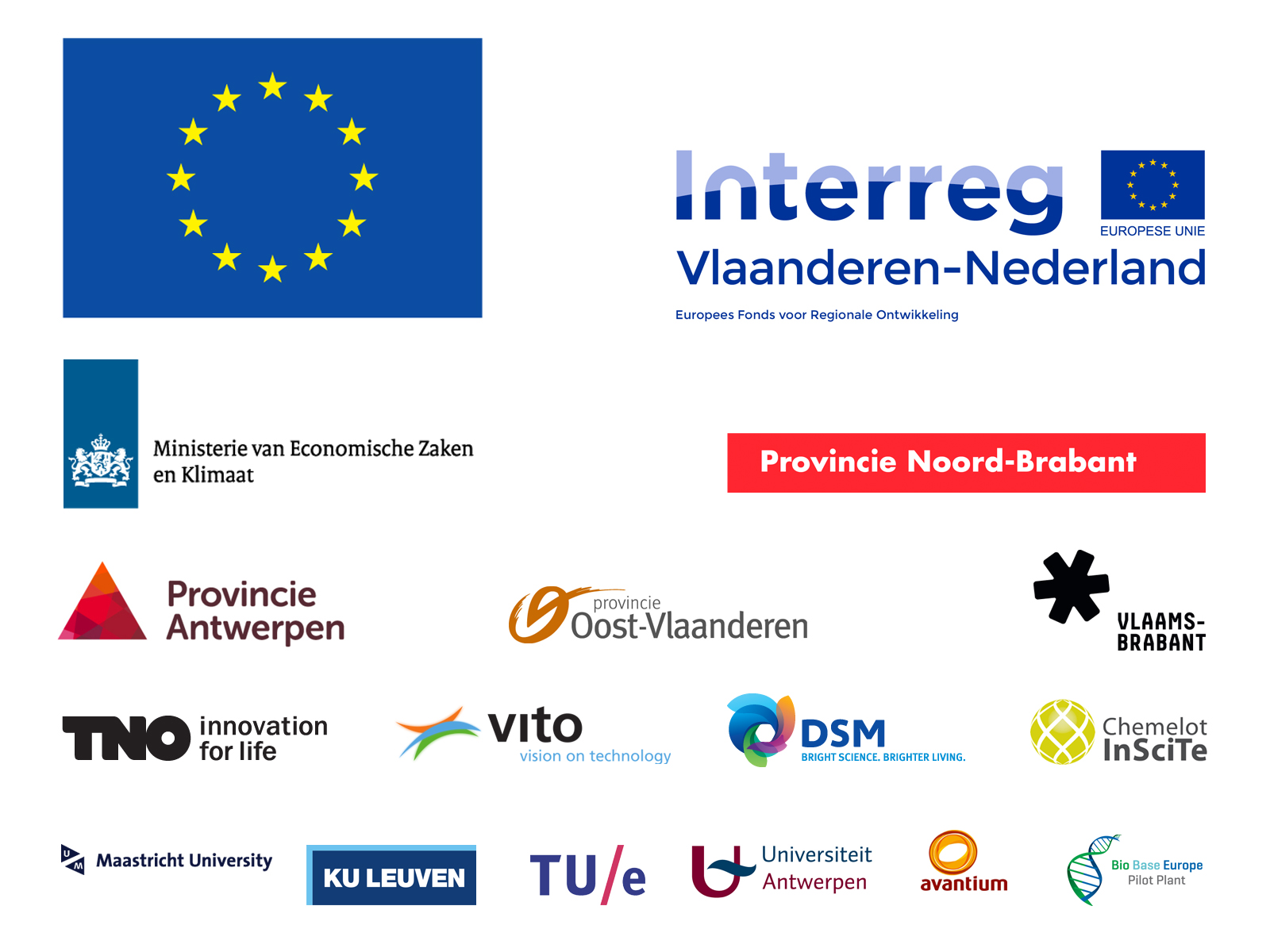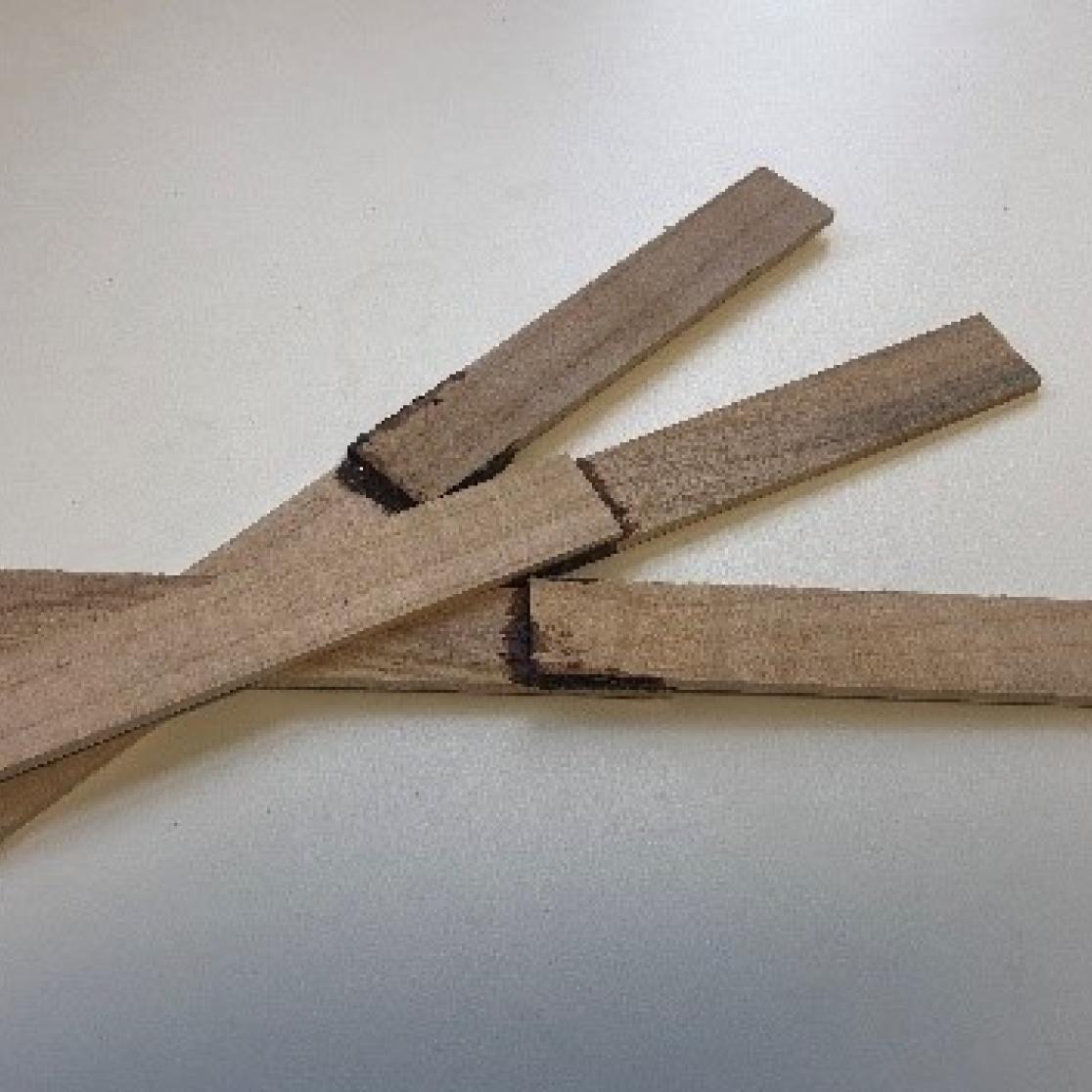Bio-HArT

In Dutch, the acronym BIO-HArT stands for 'Biorizon Innovation and Upscaling of Renewable Aromatics Technology'. Over the past years Biorizon has developed three commercially promising technologies for the conversion of wood, sugars and lignin into aromatics. By demonstrating the technology within this project on a larger scale, the confidence in the applicability of the technology on an industrial scale enhances and the risk to invest diminishes. Simultaneously bio-aromatics will be produced in sufficient quantities to be able to start application development routes.
For more information
Go to Biorizon website
Go to Interreg Vlaanderen-Nederland
Next step in industry-driven roadmap of Biorizon
This project is the next step in the industry-driven roadmap of Shared Research Center Biorizon. The BIO-HArT-project has got 3 goals:
- Development of optimized procedures for chemistry and process.
- Realization of generic and multi-purpose bench scale demonstrators for the 3 technologies (wood, sugars and lignin to aromatics).
- Producing samples of sugars, lignin, furans, akylphenols, mono-, di- & tri-acids, functionalized phenols and other aromatic compounds. Subsequently, together with the industry applications will be developed on the basis of these samples.
Together with the industry the project results of BIO-HArT will be further developed and eventually they will be implemented in new value chains in which multiple feedstock suppliers, chemical companies and end users will be incorporated and in which existing and new production locations will be used.
BIO-HArT UM progress dd. Oct 2018
We are involved in the BIO-HArT project in work packages 6 and 7, where we are responsible for lignin-based materials modification (WP6) and application (WP7). As a result of successful collaboration with the project partners within BIO-HArT platform: Eindhoven University of Technology, University of Leuven, University of Antwerp, Bio Base Europe Pilot Plant, VITO, DSM and InSciTe, we received 32 samples (from 0.4 g to 1.5kg) of lignin and depolymerized lignin monomers and oligomers. Our focus is to use them in adhesive resins applications.
We developed an alternative solution to state-of-art phenol-formaldehyde (PF) resins, which are commonly applied as wood adhesives.
PF resins are using harmful and toxic chemicals during the resin synthesis and release toxic volatiles upon curing when they are applied. For this reason, there is an urgent need to develop an alternative product with comparable performance. Our approach benefits over PF resins in:
- Replacing of harmful phenol by lignin based materials
- Resin curing without the release of toxic formaldehyde
- Using lignin as the only source of phenolic compounds (in PF resins only half of phenol could be replaced by lignin without significant loss of performance).
We established the proof-of-concept for adhesive resins, which have similar performance to PF resins. The methodology for novel, phenol and formaldehyde free resin synthesis was developed and we transferred the knowledge to all available lignin fractions. At this stage, we are furtherly optimizing the curing conditions, so we can achieve the best possible performance of the resins. We also started the upscaling of the process to deliver samples for the evaluation by the industrial partners, who will be eager to test our materials in their applications. Please contact katrien.bernaerts@maastrichtuniversity.nl if you are one of them.

"The BIO-HArT-project is of great importance to be able to accomplish our final goal: enable commercial production of bio-aromatic by 2025", says scientific manager of Biorizon Jan Harm Urbanus.